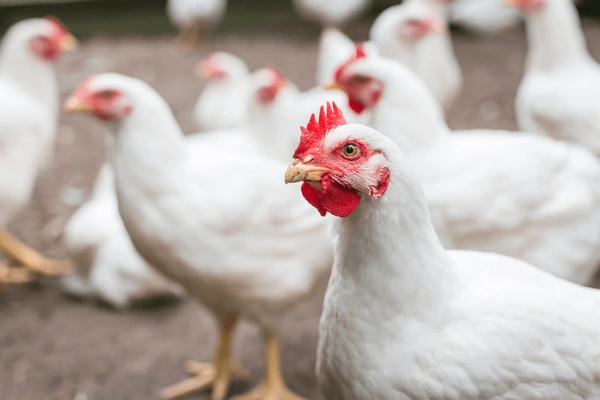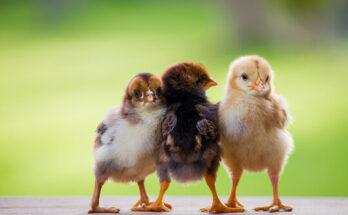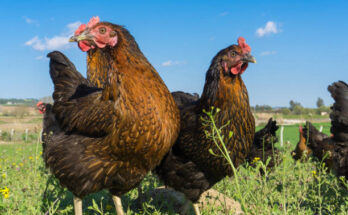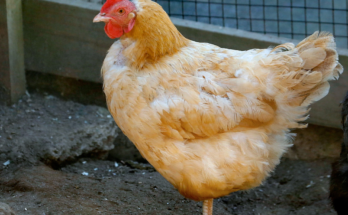The Ultimate Guide to Broiler Chickens: Understanding, Farming, and Welfare
What Is A Broiler Chicken?
When you bite into a succulent piece of chicken at your favorite restaurant or savor a perfectly grilled chicken breast at home, chances are it comes from a broiler chicken. But what exactly is a broiler chicken, and why is it so significant in the poultry industry?
In simple terms, a broiler chicken is a type of chicken that is specifically bred and raised for meat production. These chickens are known for their rapid growth and efficient conversion of feed into muscle, making them the cornerstone of the modern poultry meat industry.
In this blog post, we’ll explore the characteristics of broiler chickens, their role in meeting the global demand for poultry meat, and the key factors involved in their production. From understanding their growth cycle to the optimal conditions for raising healthy broiler chickens, we’ll cover everything you need to know about these essential birds in the poultry supply chain.
Understanding Broiler Chickens
Broiler chickens are a specific breed of poultry that are primarily raised for meat production. They are characterized by their rapid growth and high feed conversion rate, which means they efficiently convert feed into muscle. These chickens typically reach market weight in a short period, making them highly sought after for commercial meat production.
Definition and Characteristics
Broiler chickens are specifically bred to maximize their growth rate and meat production. They are known for their fast growth, reaching market weight in as little as 6-7 weeks. These birds exhibit a high feed conversion rate, meaning they efficiently convert feed into muscle, resulting in a cost-effective meat production process. Their white feathers and yellow skin are distinctive physical characteristics that set them apart from other poultry breeds.
Importance in Poultry Industry
Broiler chickens play a pivotal role in meeting the global demand for poultry meat. Their efficient growth and high meat yield make them indispensable in the commercial poultry industry. With the increasing worldwide demand for protein-rich food, broiler chickens contribute significantly to ensuring food security and meeting consumer needs. Their rapid growth and conversion rate make them essential for sustaining the meat supply chain, thereby supporting the global food industry.
Broiler Chicken Farming
Raising broiler chickens requires careful attention to their housing, nutrition, and health management. Here’s a breakdown of the key aspects involved in broiler chicken farming.
Housing and Environment
Broiler chickens thrive in controlled environments that cater to their specific needs. The housing should maintain an optimal temperature, typically around 70-75°F, and proper ventilation to ensure good air quality and reduce the risk of respiratory issues. Adequate space is crucial to prevent overcrowding, with recommended space allocation of around 0.75-1 square foot per bird. Additionally, maintaining cleanliness and dry bedding is essential for their overall well-being.
Feeding and Nutrition
A well-balanced diet is vital for the healthy growth of broiler chickens. Their nutritional needs can be met through a carefully formulated feed, typically consisting of protein, carbohydrates, fats, vitamins, and minerals. The feeding schedule should be regular, providing access to feed and water at all times to support continuous growth. Attention to the feed composition and the provision of fresh, clean water is essential for optimal development and overall health.
Health and Disease Management
Maintaining the health of broiler chickens involves preventive measures and proactive management. Disease prevention is key, often achieved through vaccination programs tailored to protect against common poultry diseases. Regular health checks and monitoring for symptoms are crucial for early detection and prompt intervention. Common health issues include respiratory infections and leg disorders, which require immediate attention and appropriate treatment.
By addressing these critical areas of broiler chicken farming, farmers can ensure the well-being and optimal growth of their broiler chickens, ultimately leading to a successful and sustainable farming operation.

Broiler Chicken Growth Cycle
Raising broiler chickens involves several distinct stages, each crucial to their overall development, health, and market readiness. The growth cycle of broiler chickens encompasses the brooding stage, growing stage, and processing and market readiness phase.
Brooding Stage
During the brooding stage, newly hatched chicks require specific care and environmental conditions to thrive. Brooding areas should be equipped with heat sources, such as heat lamps or heaters, to maintain an optimum temperature of around 95 degrees Fahrenheit during the initial weeks of life. Additionally, adequate bedding and access to fresh, clean water are essential for the well-being of the chicks. The provision of starter feed containing essential nutrients like proteins, vitamins, and minerals is vital to support healthy growth and development during this stage.
Growing Stage
The growing stage of broiler chickens demands meticulous feeding, monitoring, and management practices. Nutritious feed, formulated to meet the dietary requirements of growing broilers, is essential for promoting optimal growth and muscle development. Regular monitoring of the flock’s health, behavior, and environmental conditions is crucial to identifying and addressing any potential issues promptly. Furthermore, maintaining proper ventilation, lighting, and adequate space within the housing facilities is essential to ensure the well-being and growth of the broilers.
Processing and Market Readiness
As broiler chickens reach market readiness, typically between 5 to 7 weeks of age, they are evaluated based on specific weight and quality standards. The optimal market weight for broiler chickens is around 4-5 pounds, with consideration for factors such as overall health, muscle development, and fat content. At this stage, they undergo processing for the market, which involves humane handling and slaughter, followed by packaging for distribution.
The growth cycle of broiler chickens is a carefully managed process, requiring attention to detail and adherence to industry standards to ensure the production of high-quality, market-ready poultry.
The content above provides valuable information on the growth cycle of broiler chickens, encompassing the brooding stage, growing stage, and processing and market readiness phase. It illustrates the specific care, feeding, and management practices vital to fostering healthy and market-ready broilers.
Broiler Chicken Welfare and Ethical Considerations
Raising broiler chickens in a humane and ethical manner is paramount for the well-being of the birds and the industry as a whole. It is essential to understand the welfare practices and ethical concerns surrounding broiler chicken farming. You can read here about the truths of commercial hens.
Welfare Practices
- Comfortable Housing: Broiler chickens should be provided with spacious and well-ventilated housing, allowing them to move freely and exhibit natural behaviors.
- Health Maintenance: Regular monitoring and prompt veterinary care are crucial to ensure the chickens are free from diseases and discomfort.
- Proper Nutrition and Water Supply: Access to balanced feed and clean water is essential for the overall health and well-being of broiler chickens.
Ethical Concerns and Industry Standards
- Genetic Selection: Selective breeding practices have raised ethical concerns due to accelerated growth rates that can lead to health issues in broiler chickens.
- Transportation and Slaughter: Industry standards are in place to minimize stress during transportation and ensure humane slaughter methods, promoting ethical treatment during these processes.
- Advancements in Welfare: The industry is continuously evolving, with efforts to enhance broiler chicken welfare through improved genetics, better living conditions, and ethical handling practices.
Ensuring the welfare and ethical treatment of broiler chickens is an ongoing commitment that requires collaboration between farmers, regulators, and stakeholders to uphold industry standards and ethical considerations.
Conclusion
In conclusion, broiler chickens are a vital component of the global food industry, providing a significant source of protein for millions of people worldwide. Understanding the characteristics and specific care requirements of broiler chickens is essential for ensuring their welfare and optimizing their growth and development. As we continue to meet the demands of a growing population, the role of broiler chickens in sustainable food production becomes increasingly significant. By prioritizing their well-being and implementing best practices, we can ensure a continuous and ethical supply of high-quality poultry products for generations to come.


